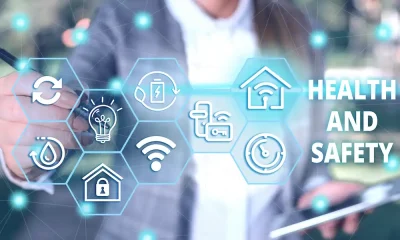Technology
Revolutionizing Business: The Impact of Advanced Software Development

The impact of advanced software development on business transformation is significant. It has revolutionized several areas of organizations, including job opportunities, enhanced productivity, eLearning, cybersecurity, and more.
What’s evident is that advanced software and skilled software development teams are the key drivers of business transformation.
Transformative Change
This article examines where software development companies create software that meets clients’ needs to make transformative changes within the business.
Crafting Unique Consumer Journeys
This begins with the need to have a deeper understanding of your customer. The modern consumer’s mindset has evolved from passive acceptance to active learning. They yearn for interactions that resonate with their unique tastes and preferences, and businesses need to respond appropriately.
Advanced software platforms equip businesses with the tools to process vast data volumes, culminating in products and services that genuinely mirror each consumer’s unique persona.
Elevating Operational Paradigms
Transitioning to digital is just the beginning of a business’s transformation journey. The actual end game is reinventing operations to achieve maximum efficiency and productivity.
With today’s advanced software solutions, businesses can reimagine their operations at a granular level, automating repetitive tasks, enhancing accuracy, and streamlining processes.
The right software can seamlessly coordinate multiple business functions, from complex human resources to vast global supply chain networks, ensuring a smooth and efficient operation.
Pioneering Fresh Business Constructs
Another core part of digital transformation is the evolution of business templates. The business templates of yesteryears are undergoing rigorous scrutiny and innovation. Agile software solutions facilitate the birth of adaptive models like usage-based subscriptions, instant-access platforms, and more. These flexible blueprints empower businesses to pivot rapidly, aligning seamlessly with fluctuating market dynamics.
Redefining Workplace Dynamics
The archaic model of a 9-to-5 desk job, confined within four walls, is being phased out. Software solutions of the modern age champion a decentralized work ethos, fostering a global collaboration paradigm. Companies can now assimilate international talents, catalyzing a melting pot of ideas, innovations, and best practices.
Remote and hybrid working are here to stay as businesses learn to accept that the benefits outweigh the negatives.
The Digital Commerce Renaissance
With robust software backbones, businesses can craft digital odysseys for consumers. These journeys encompass everything: intuitive product searches, immersive product demos, streamlined checkouts, and post-purchase support. The aim? To transform every online interaction from a mere transaction to an unforgettable experience.
AR and VR: The Nexus of Reality and Virtuality
No longer relegated to the realms of sci-fi, AR and VR, backed by next-gen software platforms, are revolutionizing consumer interactions.
Augmented Reality (AR) and Virtual Reality (VR) represent the convergence of reality and virtuality by blending physical world elements with computer-generated information or immersing users entirely into a simulated environment.
AR
AR superimposes digital information, such as images, text, or 3D models, onto the real-world environment. This enhances the user’s perception of the natural world with additional contextual information. For example, users can see digital annotations on physical objects through AR glasses or smartphone screens.
VR
VR immerses users in a fully synthetic, computer-generated environment, effectively replacing their physical surroundings. This creates a sense of presence and immersion that can be used for training, simulations, or entertainment. Users have control over their virtual surroundings.
VR is often used for training simulations where users can practice and learn in a safe, controlled virtual environment.
These tools unlock avenues for businesses, from hyper-realistic product visualizations to immersive training environments, setting the stage for unprecedented consumer engagement.
Driving the Green Business Revolution
Today’s software tools aren’t limited to profit metrics; they’re the torchbearers of corporate responsibility.
Advanced analytics and software-driven insights guide businesses in tracking and reducing their carbon footprint. These tools are advantageous and imperative in a world increasingly conscious of ecological well-being.
Software Development: A Partnership Etched in Code
How does advanced software development happen in the form of new systems, apps, and code?
Venturing beyond the surface, it’s evident that software development transcends code generation. It’s a mutual journey, a bond.
By collaborating with a seasoned software developer, businesses don’t just acquire a technical partner; they gain an ally. This collaborator delves deep, understanding industry-specific challenges, preempting market transitions, and architecting solutions that resonate beyond the balance sheet, impacting real-world scenarios.
Industries
Let’s look at the industries benefiting from technological advancements, where software development is at its core.
EdTech
Education Technology (EdTech) is advancing by leaps and bounds where technology is advancing learning. Online learning platforms like Udemy and Skillshare and educational apps are available from the Apple Store and Google Play.
Devices like smartphones and tablets used in the classroom for learning improve grades. It’s easy to see a healthy future of education technology where gamification for student engagement and virtual classrooms will become the norm.
FinTech
FinTech is another sector that has benefited from and will continue to benefit from advanced software development. Financial technology (FinTech) refers to various technologies disrupting traditional financial services.
Are you familiar with mobile payment apps, robo-advisors, blockchain technology for secure transactions, and peer-to-peer lending platforms? Web3 tech relies on DeFi (Decentralized Finance) and the use of the blockchain for smart contracts.
RetailTech, EnergyTech, and more
Energy technology includes software for power solutions like solar and hydro, intelligent grids, and storage systems. RetailTech includes ecommerce platforms, payment solutions like accepting digital currencies, inventory management software, and AI-powered software for customer data capture and recommendations.
Many more industries are benefiting from advanced technology, including:
- Entertainment
- Manufacturing
- Transport and Logistics
- Agritech
Summing Up
In the ever-evolving landscape of the digital era, one undeniable truth emerges: advanced software development holds the key to unlocking the triumphs of modern business.
Like a skilled architect, software is a tool and crafts the blueprint for success. It is the driving force behind innovation, igniting ambitions and propelling groundbreaking achievements.
By intricately weaving software development into their core strategic blueprint, businesses don’t just survive these shifts; they harness them, emerging as trendsetters.
Every contemporary success story, from nimble startups to global conglomerates, bears testament to the profound influence of software. It’s more than a digital solution; it’s the lifeblood that courses through the veins of modern enterprises, offering them the agility, scalability, and resilience they need.






